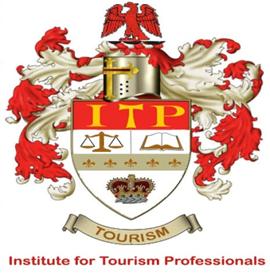Skills Development catalog
Food Safety Inspection
(Approved by the Environmental Health Officer Registration Council of Nigeria, EHORECON, in collaboration with the Institute for Tourism Professionals, ITP)

A. Food safety laws and administration
Learning Objectives:This module is designed to enable trainees to:
- • Understand the laws that apply to food businesses and food handlers
- • Understand the role of enforcement officers, and other statutory regulatory/enforcement agencies, the powers of local government authority in control and regulation of Restaurants, and other food premises
- • Describe the development and detail of contemporary statutes, regulations and codes of practice, industry guidelines, international directives and conventions
- • Understand litigation process
Book course>>
B. Food Hazards and Safety Management Control Systems (HACCP)
Learning Objectives:This module is designed to enable trainees to:
- • Identify the types and characteristic of food hazards
- • Evaluate and assess the risks associated with these hazards
- • Select and justify the control strategies appropriate to these hazards
- • Be acquainted with total quality and safety management systemng
- • Understand the relationship between (ISO 9,000, ISO 1400, ISO 22000, ISO 17025 etc.)
- • Establish HACCP Plan to control food hazards and diseases
- • Develop guidelines for the application of HACCP system
- • Identify various critical control points in food establishment
Book course>>
C. Food Technology, Hygiene and Sanitation
Learning ObjectivesThis module is designed to enable trainees to:
- • Identify the various techniques in food production.
- • Explain the significance of food technology throughout the food chain
- • Describe the principles of food technology as they relate to the production of safe food
- • Appraise the necessity for personal hygiene in food safety
- • Assess training provision for hygiene and sanitation in food establishment
- • Identify safety measures that enhance sanitation in food safety establishment
- • Ascertain Sanitation regulations and standards in the food establishment
- • Identify hygiene and sanitation problems in food establishment
- • Understand various hygiene and sanitation records in food establishment
Book course>>
D. Food Premises Inspection
Learning Objectives:This module is designed to enable trainees to:
- • Conduct an inspection, audit and hazard analysis assessment on a range of food premises
- • Apply the relevant management techniques and tools to achieve compliance with food safety laws
- • Identify various procedures involved in food premises inspection
- • be conversant with food business operation and the activities which are critical to ensuring food safety
- • Become acquainted with skills required for effective performance in food premises inspection
- • Become aware Food Premises Inspection Training Areas for Food Safety Inspectors
Book course>>
Notes:
The Institute for Tourism Professionals (ITP) is an International examination and Certificating body devoted to supporting and promoting the profession by developing, certifying, and connecting Practitioners working in the Tourism and Allied Industries.
ITP is a Professional Membership Institute committed to fostering greater understanding of the importance of Tourism, working to enhance the status of those engaged in the profession and promote global higher standards.
The ITP (Institute for Tourism Practitioners) credential is the hallmark of professional competence and excellence in the Tourism, Catering and Hospitality Industry.
The Institute provides practitioners, trainees and members with special access to public decision-makers, tourism resources and market leaders in the tourism and hospitality fields. The Institute attract scholars and professionals from around the globe creating unique opportunities for long-term educational, research and consulting alliances.
Members are qualified and professionally experienced in a variety of fields resulting in a multidisciplinary approach to teaching, research and service where constant emphasis is placed on real-world experience.
Such broad experience means the Institute provide trainees, consultants, and clients with a solid theoretical grounding as well as first-hand knowledge of the industry creating strategic global alliances that are shaping the tourism industry of tomorrow.